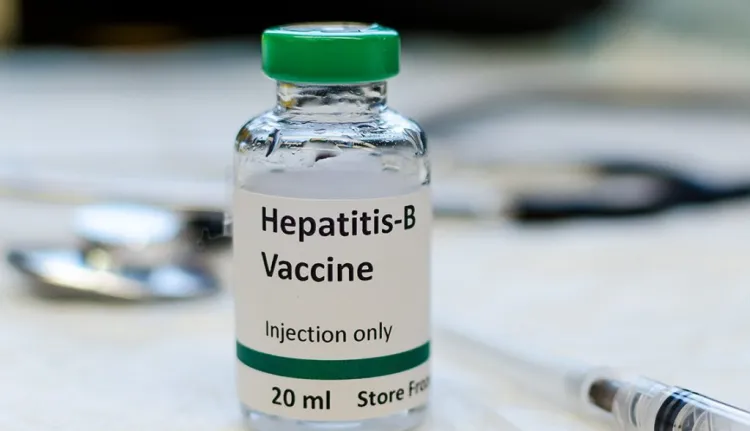Only 16% of Ghanaian Babies Receive Timely Hepatitis B Vaccine – WHO

- Only 16% of Ghanaian infants receive the Hepatitis B vaccine within 24 hours of birth
- The "Hepatitis-Free Ghana" campaign aims to integrate HepB-BD
- Global Media Foundation (GloMeF) has launched a campaign to raise awareness
The Global Media Foundation (GloMeF), led by founder and CEO Raphael Godlove Ahenu, is raising alarms over the disturbingly low rate of Hepatitis B Birth Dose (HepB-BD) vaccinations among newborns in Ghana.
According to the World Health Organisation, merely 16% of babies in Ghana receive this crucial vaccine within the first 24 hours of birth.
This shortfall is attributed to various factors, including insufficient public awareness, limited vaccine availability and accessibility, and the lack of integration of HepB-BD into routine immunization services.
In response, GloMeF has launched an advocacy campaign called “Hepatitis-Free Ghana,” aimed at improving vaccine coverage and ensuring timely administration.
Godlove Ahenu is calling for the inclusion of HepB-BD in the Expanded Programme on Immunization (EPI) to protect all newborns.
The campaign seeks to drive policy reforms, enhance healthcare provider training, and boost public awareness to curb mother-to-child transmission and work towards eliminating Hepatitis B by 2030.
Godlove Ahenu emphasized that the lack of a national policy mandating the HepB-BD vaccine further complicates the issue, putting many infants at risk of infection.
To tackle this, a collaborative effort is needed from the Ministry of Health, Ghana Health Service, healthcare providers, and community leaders to raise awareness, allocate resources, and prioritize vaccine integration.
Mr. Clement Boateng, GloMeF’s Country Director, highlighted that Hepatitis B poses a serious public health threat, often leading to chronic conditions and premature death. With up to 90% of infants infected with the virus likely to develop lifelong infection, preventing transmission at birth is critical.
The advocacy campaign aims to reach at least one million people across Ghana, including expectant mothers and caregivers, through community forums, media outreach, and partnerships with local organizations.
The Ghana Partnership Against Hepatitis (GPAH) is spearheading this initiative across all 16 regions of the country.






